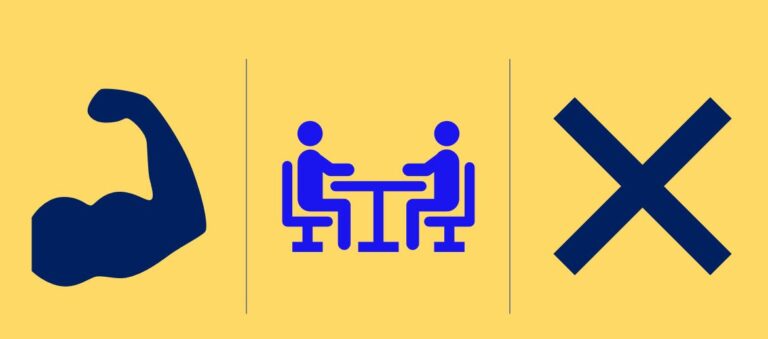How To Answer ‘How Do You Handle Stress And Pressure’ + 10 Powerful Examples
About the author: Ilam’s career in Technology and Financial Services spans more than two decades, characterized by leadership roles and vast international experience. He has managed large global teams, worked across five countries, and engaged with colleagues from over 100 nationalities. Through this blog covering executive interview questions, Ilam shares his diverse experiences and insights, aiming to contribute to and enrich the community.

Stress is an inevitable part of life, and it’s no different in the workplace. Employers want to know how you handle stress because they’re looking for candidates who can remain productive and focused under
pressure. The “How Do You Handle Stress and pressure?” or variations of it are interview question is designed to assess your ability to manage stress and evaluate if you’re the right fit for the position.
Answering this question effectively requires careful preparation and a thoughtful response. It’s not enough to simply say that you don’t get stressed or that stress doesn’t affect you. Instead, you need to demonstrate your emotional intelligence and problem-solving skills by providing concrete examples of how you’ve handled stressful situations in the past.
In this article, we’ll provide tips and advice on how to answer the “How Do You Handle Stress?” question during a job interview. We’ll explore the importance of being honest, giving some sample answers, and emphasizing positive outcomes when discussing stress management.
Here are some helpful job interview related blogs
- Tackling the final interview round
- How to answer ‘tell me about yourself’
- What are your career aspirations
- Why do you want this job
- Why should we hire you
- Why are you leaving your job
- What are you passionate about
- Strengths and Weaknesses In Interview
- Interview questions for managers
- What is your management style
- Interview questions for freshers
- Tips to succeed in a job interview
- Types of interview questions
- Interview questions to ask candidates
- Behavioural interview questions
- Walk me through your resume
- What makes you unique
- What are your goals
- How do you handle stress and pressure
- Are you a team player
- How did you hear about this position
- Where do you see yourself in five years
- How do you handle stakeholders
Why do interviewers ask this question
During job interviews, hiring managers ask the question “How do you handle stress?” to gain insight into a candidate’s personality, work habits, and problem-solving abilities. This question is crucial because it provides employers with an opportunity to assess a candidate’s ability to handle challenges, work collaboratively with others, and maintain a positive attitude under work related stress.
Assessment of Problem-Solving Abilities and Work Habits
The way a candidate responds to stress can provide valuable information about their problem-solving abilities and work habits. By answering this question, candidates can showcase their ability to prioritize tasks, stay organized, and remain calm under pressure. The answer can also demonstrate how they use their problem-solving skills to manage stressful situations to the hiring manager.
Evaluation of Emotional Intelligence and Self-Awareness during stressful situations
Moreover, the way a candidate answers the stress question can give employers a glimpse into their emotional intelligence and self-awareness. A candidate who is honest and introspective when discussing their stress management strategies demonstrates maturity, self-awareness, and the ability to take responsibility for their own mental health.
Determination of Candidate’s Fit for the Job
Overall, the “How Do You Handle Stress?” question is an important part of the job interview process because it helps employers determine if a candidate is the right fit for the job. Employers want to hire candidates who can handle stress effectively without compromising their productivity or well-being.
By answering this question thoughtfully and honestly, candidates can demonstrate their resilience, adaptability, and professionalism, all of which are highly valued qualities in the modern workplace.
Structuring Your Answer to “How Do You Manage Stress and Pressure”
Here are some tips for structuring your answer for the question ‘how do stress at work:
Be Honest
It’s important to be honest when answering this question. Employers value transparency, and they want to know if a candidate can recognize and admit when they’re feeling overwhelmed or when they are in a stressful situation. Offering an honest answer also shows that you’re self-aware and willing to take steps to manage your stress levels effectively. Every one knows it is impossible to stay positive all the time.
If you needed support from mental health professional, do share it as it may be an good example where you sought help when needed. If you are going to be judged poorly for it, you might be better off for it as your potential workplace doesn’t encourage transparency and might be unsupportive when needed.
Being honest also allows you to answer any follow up questions without trouble.
Give Examples
Providing specific examples is crucial when answering the “How do you handle stress and pressure?” question. Examples allow you to demonstrate how you’ve managed stressful situations in a previous job, highlighting your problem-solving skills and resilience. It’s important to use concrete examples that illustrate your thought process and actions during stressful situations.
Emphasize Positive Outcomes
When discussing how you handle stress and pressure, it’s essential to focus on positive outcomes. Employers want to hire candidates who can manage stress effectively without letting it negatively impact their work or well-being. Highlighting positive outcomes, such as completing projects on time or finding creative solutions to problems, demonstrates your ability to stay calm and focused under pressure.
Showing examples where you are self aware and actively work to minimize stressful situations is a great way to showcase yourself.
Highlight Your Ability to Work Under Pressure
Employers want to know that they can rely on their employees to work well under pressure. When answering this question, emphasize your ability to stay organized, prioritize tasks, and remain calm in high-pressure situations. Use examples from your past experiences to showcase how you’ve handled stress and pressure effectively.
Discuss Self-Care Techniques
It’s essential to discuss self-care techniques when answering the “How do you handle stress and pressure?” question. Self-care strategies, such as yoga, meditation, or exercise, can help manage stress and maintain your mental health. Additionally, discussing these strategies shows that you take your mental health seriously and take steps to maintain it.
In conclusion, answering the “How do you handle stress and pressure?” question thoughtfully and honestly can demonstrate your problem-solving skills, resilience, and ability to work well under pressure. Using the above tips to structure your answer can help you provide a compelling response that impresses your interviewer.
DOs & DO NOTs When Answering “How Do You Handle Stress?” in a job interview

Before we look at some examples, here is a recap of some DOs & DO NOTs to keep in mind when answering this question:
DO be honest
It’s essential to be honest when answering this question. Interviewers can tell when a candidate is being insincere or dishonest, and an untruthful answer can harm your chances of getting the job. Be honest about your strengths and weaknesses when managing stress, and use specific examples to demonstrate how you’ve handled stressful situations in the past.
DO give examples
Provide concrete examples of how you handle stress and pressure. Using specific examples allows you to highlight your problem-solving skills and resilience and gives your interviewer insight into your thought processes and actions during stressful situations.
DO emphasize positive outcomes
When discussing how you handle stress and pressure, focus on positive outcomes. Highlighting positive outcomes demonstrates your ability to stay calm and focused under pressure and shows that you can manage stress effectively without letting it impact your work or well-being.
DO highlight your ability to work under pressure
Emphasize your ability to work well under pressure. Use examples from your past experiences to showcase how you’ve handled stress and pressure effectively, highlighting your organization, prioritization, and time management skills.
DO discuss self-care techniques
Discuss self-care techniques that you use to manage stress and maintain your mental health. Employers want to see that you take your well-being seriously and that you’re willing to take steps to manage your stress levels effectively.
DO NOT sound negative
Avoid sounding negative when answering this question. While it’s essential to be honest about your stress management strategies, focusing solely on negative aspects can send a negative message to interviewers.
DO NOT exaggerate
Avoid exaggerating your stress management skills or using examples that aren’t entirely accurate. Interviewers can quickly tell when a candidate is exaggerating their abilities, and it can harm your chances of getting the job.
DO NOT blame others
Avoid blaming others when answering this question. Taking responsibility for your actions and emotions is crucial when discussing stress management, and blaming others can make it seem like you’re not capable of handling stress effectively.
Sample Answers – How Do you handle stress and pressure

Use these example answers for inspiration only
Marketing Executive
As a marketing executive, I find that stress is a natural part of the job. To manage it effectively, I prioritize tasks based on urgency and importance, and I make sure to take regular breaks throughout the day to recharge my batteries. I also enjoy practicing yoga and meditation, which helps me stay calm and focused even in the most high-pressure situations.
Engineering Manager
As an engineering manager, I’ve learned that the best way to handle stress is to focus on problem-solving rather than dwelling on negative emotions. I use specific examples to illustrate my thought process and actions during stressful situations, and I emphasize positive outcomes to demonstrate my ability to stay calm and focused under pressure.
Recent Graduate
As a recent graduate entering the workforce, I find that stress can be overwhelming at times. However, I manage it by staying organized and breaking down tasks into manageable chunks. I also take regular breaks to avoid burnout and practice mindfulness meditation to keep my mind clear and focused.
Customer Service Representative
In my previous role as a customer service representative, I dealt with stressful situations on a daily basis. To manage it effectively, I would take deep breaths and focus on finding a solution instead of getting caught up in negative emotions. I found that this approach helped me remain calm and level-headed, even in the most challenging situations.
Project Manager
As a project manager, I’ve learned that clear communication is key to managing stress and pressure effectively. I make sure everyone on the team is aware of their responsibilities and deadlines, and I encourage open and honest communication so that issues can be addressed before they become major problems.
Sales Executive
As a sales executive, I’ve developed a variety of stress management techniques over the years. I find that exercise helps me stay calm and focused, and I also enjoy taking breaks throughout the day to meditate or read a book. These practices help me recharge my batteries and maintain a positive attitude, even in the face of adversity.
HR Professional
As an HR professional, I’ve learned that stress is a natural part of the job. To manage it effectively, I prioritize my tasks based on urgency and importance, and I make sure to take regular breaks throughout the day to stay refreshed. I also practice mindfulness meditation to stay calm and focused, even in the most challenging situations.
Software Developer
As a software developer, I find that stress often comes from tight deadlines and complex projects. To manage it effectively, I break down tasks into smaller, more manageable pieces, and I use specific examples to illustrate my problem-solving skills. I also make sure to take regular breaks to avoid burnout and stay fresh.
Business Analyst
As a business analyst, I’ve learned that managing stress requires a proactive approach. I prioritize my tasks based on urgency and importance, and I communicate with my team regularly to ensure everyone is on the same page. I also enjoy practicing yoga and meditation before work, which helps me stay calm and focused throughout the day.
Financial Analyst
As a financial analyst, I’ve developed a variety of stress management techniques over the years. I find that exercise helps me stay calm and focused, and I also enjoy taking breaks throughout the day to meditate or read a book. I prioritize my tasks based on urgency and importance, which allows me to manage my workload effectively without getting overwhelmed.
Here are some helpful career/leadership related blogs
- Careers– Agile Coach, RTE, Product Owner, Scrum Master, QA Manager
- Career development plan
- Career growth
- Project Management
- Managing Managers
- IT Career switch
- Software Engineering career path
- Agility, Agile Testing
- Remote leadership / Leadership traits / Agile leadership
Other Productivity / Tools posts that may interest you
- Productivity
- Book summary apps – Headway App vs Blinkist vs getAbstract
- AI Writers: / Blogging – Jasper, Writesonic, Article Forge , Copy AI, Anyword, Writecream, Copymatic, Quillbot, Peppertype, Jasper AI (pricing) &
- Work From Home tools: Jabra
Author also writes at his Medium site.





